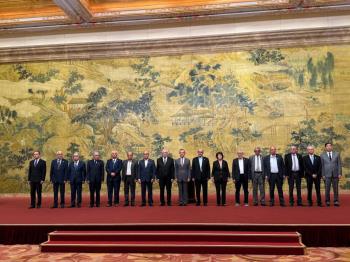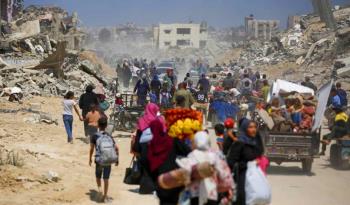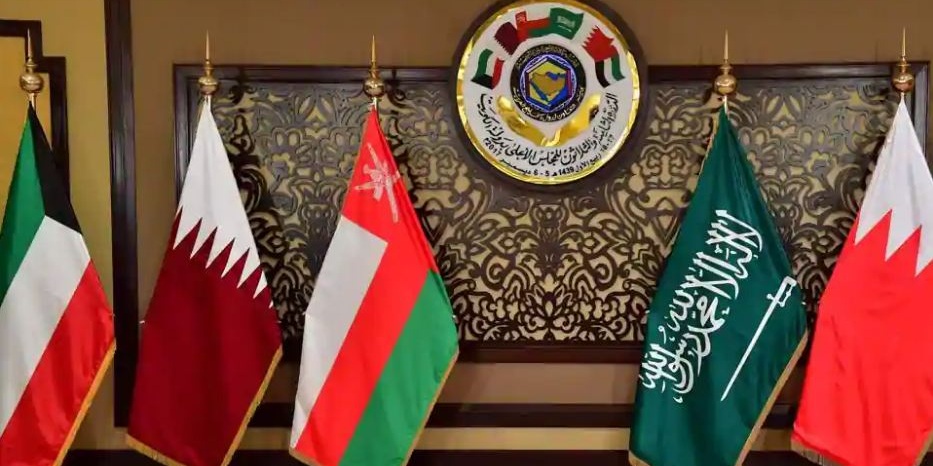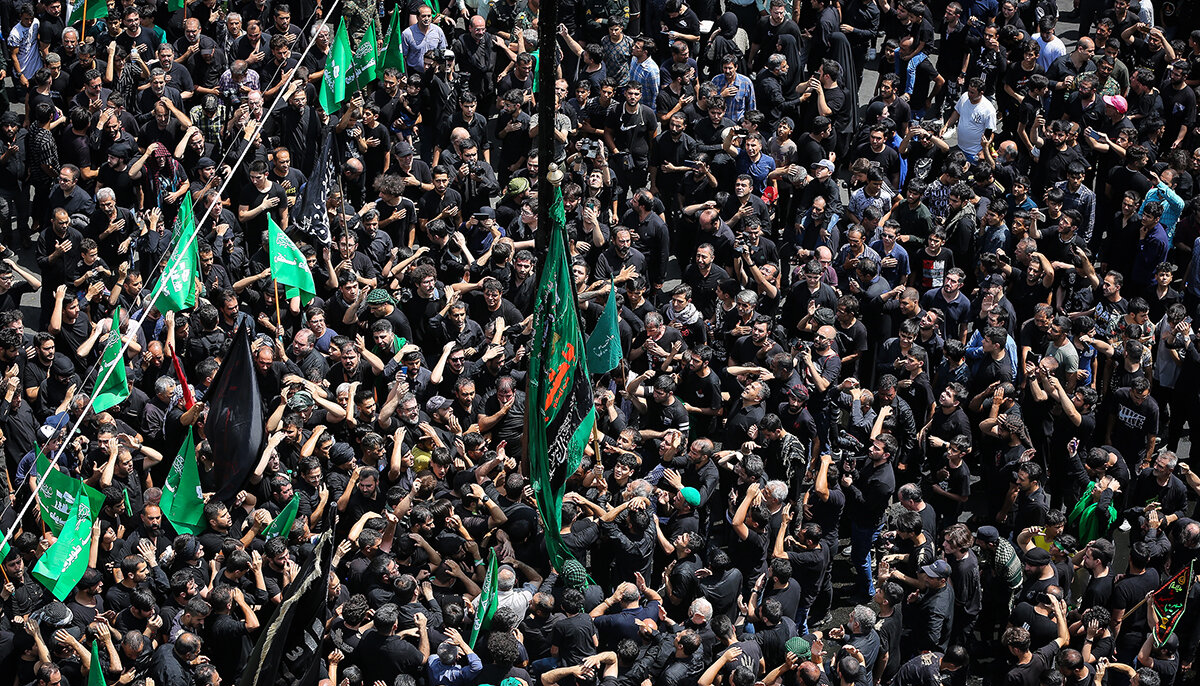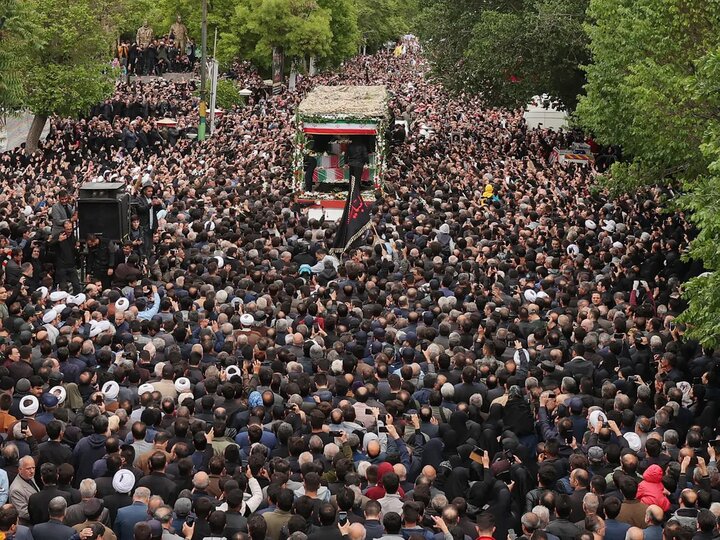Alwaght- The blockade imposed on Qatar by Riyadh that followed a crisis with Saudi Arabia, the UAE, Bahrain, and Egypt has entered its fourth year as no signs of the solution to the unprecedented diplomatic tensions among the Arab states of the Persian Gulf are in sight.
On June 5, 2017, Riyadh, Abu Dhabi, Manama, and Cairo declared severing all of the diplomatic ties with Doha and imposing a ban on it from the sea, air, and ground. They then presented to the emirate 13 conditions that Qatar was asked to comply with for a rapprochement. The conditions essentially asked it to review its foreign policy and regional relations. The 13 demands by the four countries echoed conditions a victor in a war foists on the loser.
This unprecedented crisis has lasted for over three years and does not seem to have a clear outlook for a settlement despite optimism by the blockading states that their pressure would come into fruition and the mediatory efforts by regional states like Kuwait and Oman to bridge the gaps between the two sides.
However, on Wednesday, Kuwaiti Foreign Minister Sheikh Sabah Al-Khalid Al-Sabah addressed the case with optimism, saying that the hopes are now bigger than ever to see an end to the Persian Gulf crisis. These comments were also made last year by the Kuwaiti officials but the wall of the differences seems too hard to be destroyed.
On Friday, former Qatari Prime Minister Hamad Bin Jassim bin Jaber Al-Thani in a string of tweets marking the third anniversary of the crisis among the members of the (Persian) Gulf Cooperation Council and the imposition of the ban on his country called Qatar the “winner” in the three-year blockade on his country and continued that the key for the solution of the crisis was not in Doha but in Riyadh depending on the Saudi stances, signaling that not only Qatar has not walked back from its positions but also has reiterated its rejection of the 13 conditions.
But what is causing this crisis to last this long?
The course of developments has been in a way over the three years that signaled the failure of the sanctioning countries to reach their goals in the ban campaign. Moreover, during this period not only the differences did not ease but also they even intensified between the two sides and at the same time, Riyadh, represented by Mohammed bin Salman, sank into the confusion over how to end the crisis costless.
Definitely, despite the initial impact of the sanctions on its economy, Qatar now can claim that it is the victor of the blockade. Thanks to the ban motivation, Qatar promoted its foreign trade as almost all of the world countries showed a will to broaden business with Doha. Additionally, Qatar introduced some economic reforms, paving the way for attracting of foreign investment and thus gaining self-sufficiency in food sector.
On Friday, Qatar's Al-Sharq newspaper, marking the third anniversary of the blockade wrote: “today on the third anniversary of the ban, people say thank God that the blockade was imposed. We made efforts towards self-determination and today we are self-sufficient.”
Qatar's resolution in the resistance to the ban has now improved the country’s international position. This status seems to be increasingly recognized. For example, South African ambassador to Qatar Faisal Musa in an interview to Aljazeera news network said: “We today see a Qatar that presents itself as an independent state with independent foreign policy and built a very independent economy.
The outcome of this development is an upper hand that Doha will have in the mediatory efforts and behind-the-scenes negotiations to settle the dispute. Now Doha challenges the unbalanced relations governing the structure of the (P) GCC, which are as old as the Arab bloc itself, as it demands reforms to the body of the bloc. As Andereas Craig, a professor at Royal College of London, suggests Saudi Arabia and the UAE have hijacked the (P) GCC to force the smaller member countries to follow their policies.”
Meanwhile, the changes in the ranks of Leadership in Saudi Arabia and the UAE in the past few years and the rise of Crown Prince Mohammed bin Salman and Crown Prince Mohammed bin Zayed as de facto leaders of the two Arab monarchies and adoption of radical and aggressive policies by them have been additional causes for the crisis to linger.
In fact, despite the deep roots of differences inside the Persian Gulf bloc, the rise to power of Prince Mohammed and his role in intensification of the disputes should not be disregarded. His handling of the Qatar case risked a military conflict between the Arab countries. Three months after the crisis began, the Kuwaiti Emir Sheikh Sabah Al-Ahmad Al-Sabah at a joint press conference with the American President Donald Trump addressed the Saudi-Qatari situation, saying that “what is important now is to stop any military action.”
Although the four countries dismissed the news about their covert plans for military action against Doha, the remarks of the Kuwaiti leader demonstrated that the smaller members were concerned about bin Salman’s aggressive policies. Some Qatari officials held that the core objective of the blockade was gaining sway over rich Qatari gas reserves.
So, while bin Salman’s policies in the region meet their failure one after another and signs of impacts of these defeats on his position as the future king show themselves at home and abroad, he feels the desperate need for a victory in Qatar case even if a superficial and sham one. But the crisis remains far from a solution as long as the above-mentioned factors exist.

